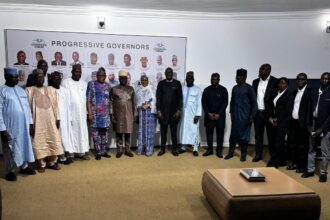The Director-General of the Nigerian Institute of Social and Economic Research (NISER), Professor Antonia Taiye Simbine, has said that the Federal Government can only address challenges of ethnic inequalities through the implementation of programmes, policies and projects geared towards fostering integration among ethnic nationalities.
She contended that “due to perceived lopsidedness in the sharing of national resources (economic and political), Nigerians are more divided now and the government of the day is faced with the huge task of managing our diversity.”
Simbine made these disclosures in her opening remark at the January 2023 edition of the NISER Research Seminar Series (NRSS) titled: “Ethnic Inequality, The Federal Character Principle, and the Reform of Nigeria’s Presidential Federalism.”
According to her, “This seminar is coming barely a month before the 2023 general elections slated to start on February 25. The election is coming at a time when the extent of centrifugal forces at play in the federation has reached an alarming level, which has never been matched since independence in 1960.
Simbine explained that for the nation to overcome the increasing agitations for self-determination among some ethnic nationalities, there is a critical need on the part of the government “to implement policies and programmes that can foster the integration of the different ethnocultural groups for national development.”
She stated: “Since the country’s independence in 1960, issues and strategies of national integration have expectedly constituted national discourses on how to handle the country’s heterogeneous and highly culturally diverse society.”
“This is not surprising given that the government at the federal level has always faced the challenge of welding disparate entities into one indivisible unit. Nonetheless, despite the constitutional principle of unity in diversity, ethnic inequality remains a major challenge in modern Nigeria.
“Federal Character Principle (FCP), established in the 1979 Constitution (and reaffirmed in the 1999 Constitution), can be viewed as a direct approach to redressing these horizontal inequalities between different groups in Nigerian society while avoiding concentration in a few ethnic hands or geographical areas.
“To accomplish these goals, Nigeria’s Federal Character Commission (FCC) has been tasked since 1996 with monitoring and enforcing the constitutional principle of federal character in government employment and public expenditure.
“Given the never-ending squabbles and complaints about the FCP’s implementation, it appears that the Federal Character Commission has been hampered by some constraints, which affect its performance.
“The principle, like many other policies in the multinational federation, has drawbacks: it favours ethnic majorities by using states rather than ethnic groupings as the units to be represented because ethnic minorities have more states than ethnic majorities; and the policy errands some ethnic groups over others, which is inconsistent with the policy’s stated goal of national unity.
In his lecture, the keynote speaker, Professor Rotimi T. Suberu, from Bennington College, in the United States of America (USA), concluded that “ethnic conflict resolution in Nigeria has not significantly reduced inter-group socioeconomic inequality or prevented intense ethnopolitical squabbles.
He stated: “Proposals for greater economic and policy decentralisation hold some promise for ensuring that the unique needs of Nigeria’s more socioeconomically vulnerable groups are “identified and addressed” effectively; that reducing or limiting the powers of Nigeria’s Africa-style super-presidency can alleviate ethnopolitical insecurity, anxiety, and animosity around presidential elections.”
ALSO READ FROM NIGERIAN TRIBUNE








